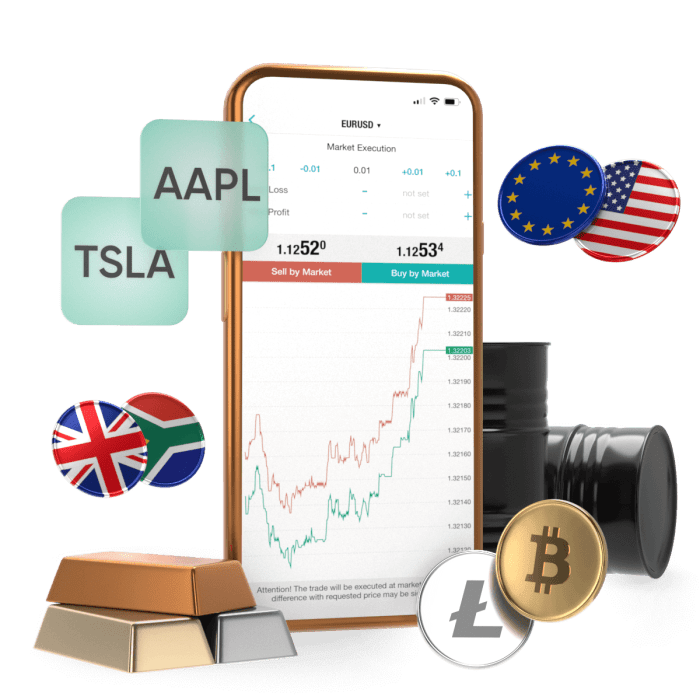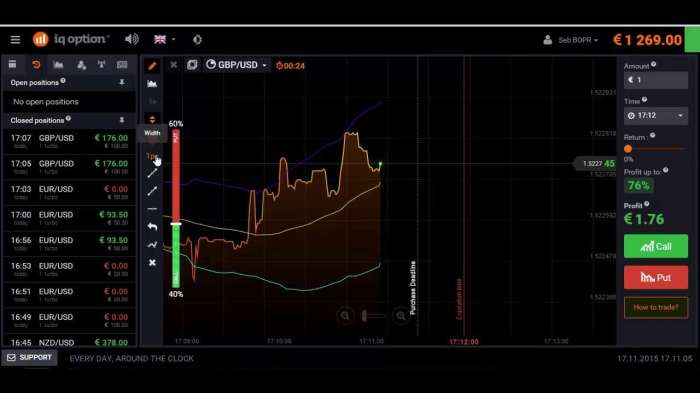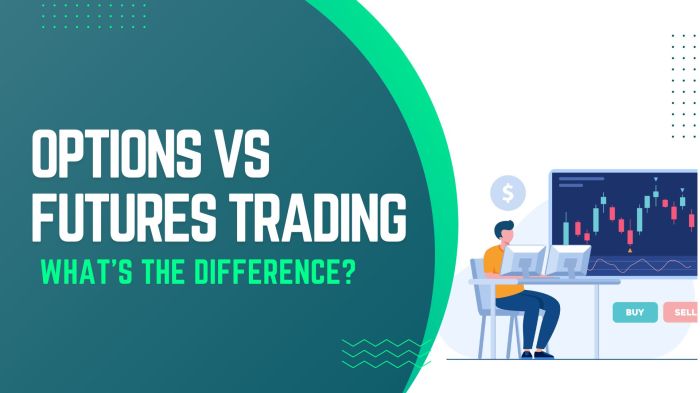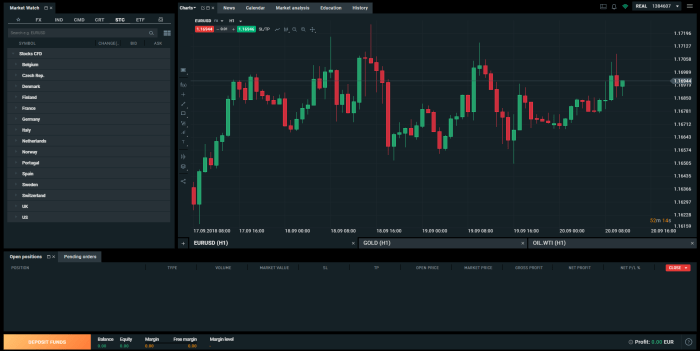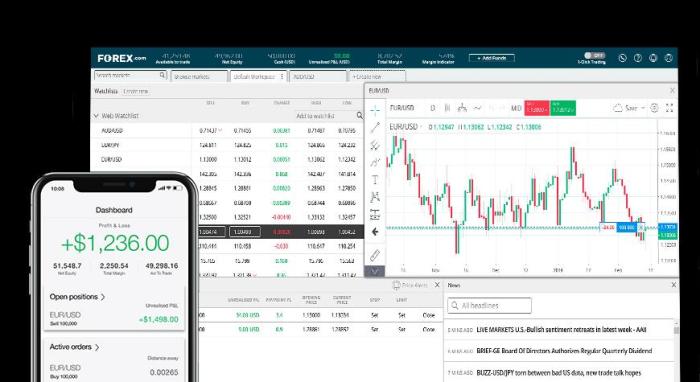
Forex trading communities: They’re the bustling online hubs where newbie pipsqueaks and seasoned forex sharks alike gather, sharing tips, tricks, and (sometimes) tales of epic wins and devastating losses. It’s a wild west of market analysis, trading strategies, and everything in between – a place where you can learn a ton, or get totally scammed. Navigating this digital landscape requires a keen eye and a healthy dose of skepticism, but the potential rewards – both financial and educational – are undeniably tempting.
This exploration delves into the diverse world of forex trading communities, examining their different types, the dynamics within them, the resources they offer, and the inherent risks involved. We’ll uncover how these communities shape traders’ learning journeys and ultimately, their success (or lack thereof) in the volatile world of forex trading. Get ready to unravel the mysteries (and maybe some myths) of these online trading havens.
Types of Forex Trading Communities
Navigating the world of forex trading can feel like venturing into a vast, uncharted ocean. Finding your footing often involves connecting with others who share your passion (or perhaps your anxieties!) about currency markets. Forex trading communities provide this crucial connection, offering a blend of support, education, and sometimes, even a touch of healthy competition. But not all communities are created equal. Understanding the different types available is key to finding the one that best suits your trading style and experience level.
Categorization of Forex Trading Communities
Forex trading communities are diverse, each catering to a specific niche within the trading world. They can be categorized by size, membership requirements, and the primary focus of their discussions. This categorization helps traders choose a community that aligns with their needs and goals. For example, a beginner might thrive in a supportive community focused on fundamental analysis, while a seasoned trader might prefer a more advanced forum centered around algorithmic strategies.
Community Types, Membership, Focus, and Communication
The following table summarizes the key characteristics of different forex trading communities. Understanding these differences can help you make an informed decision about which community is right for you.
| Community Type | Membership Requirements | Focus | Communication Methods |
|---|---|---|---|
| Beginner-Friendly Forums | Open to all; often free to join. | Basic forex education, fundamental analysis, risk management, trading psychology. | Forums, Q&A sections, sometimes live webinars or introductory courses. |
| Advanced Trader Groups (Subscription-Based) | May require a paid subscription, proof of trading experience, or an application process. | Advanced trading strategies, algorithmic trading, proprietary trading systems, high-level risk management. | Private forums, exclusive webinars, mentorship programs, dedicated chat rooms. |
| Strategy-Specific Communities (e.g., Scalping, Swing Trading) | Open to all interested in the specific strategy; often free to join. | Discussion and refinement of a particular trading style, sharing of indicators and setups, analysis of specific market conditions. | Forums, dedicated chat rooms, signal sharing platforms (with caution). |
| Social Media Groups (Facebook, Telegram) | Generally open to all; often free to join. | Vary widely; can range from beginner education to advanced strategy discussions to simple market updates. | Group posts, comments, direct messaging, potentially live streaming. |
Benefits and Drawbacks of Different Community Types
Each type of forex trading community offers unique advantages and disadvantages. For instance, beginner-friendly forums provide a supportive environment for learning, but may lack the depth of discussion found in advanced groups. Conversely, advanced groups offer expert insights, but might be intimidating or too complex for newcomers. Social media groups offer broad reach but can be prone to misinformation and “noise”. Carefully weighing these factors is crucial for maximizing the benefits and minimizing the risks associated with community participation.
Community Dynamics and Interactions: Forex Trading Communities

Forex trading communities, vibrant online hubs for traders of all levels, are complex ecosystems of shared knowledge, competitive spirit, and occasionally, drama. Understanding the social dynamics at play is crucial, not just for navigating these spaces effectively, but also for maximizing your learning and trading success. The interactions within these groups significantly shape the individual trader’s journey, impacting everything from risk management to trading psychology.
The interplay of experience levels creates a unique dynamic. The community isn’t just a homogenous blob; it’s a layered structure with distinct roles and interactions.
Roles Within Forex Trading Communities
Different members contribute in various ways, creating a dynamic ecosystem. The interactions between these roles are what truly define the community’s character and its impact on individual traders. Mentors, experts, and beginners all play a crucial part, and their interactions can range from highly constructive to downright toxic.
- Mentors: Experienced traders who share their knowledge and guide newcomers. Their role often involves providing personalized feedback, answering questions, and offering valuable insights based on years of experience. A good mentor fosters a supportive learning environment, emphasizing responsible risk management and continuous learning.
- Experts: Individuals with a proven track record of success, often recognized for their analytical skills and consistent profitability. They may offer educational resources, share trading strategies, or participate in community discussions. Their presence can inspire and motivate beginners, but their advice should always be critically evaluated.
- Beginners: New traders actively seeking knowledge and guidance. Their contributions range from asking fundamental questions to sharing their trading experiences, both successes and failures. Their active participation is essential for community growth, as their questions often prompt discussions that benefit everyone.
Examples of Positive and Negative Interactions
The interactions within these communities are diverse, influencing both learning and trading outcomes. Understanding these dynamics is crucial for navigating the space effectively.
Positive interactions foster a supportive and collaborative environment, while negative interactions can hinder learning and even lead to financial losses.
- Positive Interaction Example: A beginner posts a detailed trade analysis showing a loss, highlighting the mistakes made. Experienced members offer constructive criticism, explaining the underlying issues and suggesting improvements in risk management and entry/exit strategies. This collaborative approach helps the beginner learn from their mistakes and avoid repeating them.
- Positive Interaction Example: A mentor shares a personalized trading plan template, guiding beginners through the process of creating their own customized strategy. This structured approach fosters responsible trading habits and helps avoid impulsive decisions.
- Negative Interaction Example: A member promotes a “guaranteed” get-rich-quick scheme, promising unrealistic returns. This can mislead beginners and lead to significant financial losses. The community’s failure to challenge or report such behavior can have devastating consequences.
- Negative Interaction Example: A heated debate erupts between members with differing trading styles, turning into personal attacks and insults. This toxic environment discourages participation and hinders productive learning. The focus shifts from trading education to unproductive conflict.
Information Sharing and Learning Resources
Forex trading communities are vibrant hubs of information exchange, offering a wealth of resources for both novice and experienced traders. The shared knowledge encompasses everything from fundamental market analysis to complex algorithmic trading strategies, creating a dynamic learning environment. However, the quality and reliability of this information can fluctuate significantly, highlighting the importance of critical thinking and verification.
The types of information shared within these communities are incredibly diverse. This diverse range of information contributes to a multifaceted learning experience, but also requires careful discernment.
Types of Information Shared
Forex trading communities act as clearinghouses for a wide array of information. Traders regularly share their experiences, insights, and resources, fostering a collaborative learning environment. This shared knowledge spans several key areas: trading strategies, market analysis, news updates, and educational resources. For instance, one might find discussions on scalping strategies, detailed fundamental analysis of specific currency pairs, real-time reactions to economic news announcements (like Non-Farm Payroll reports), and links to educational webinars or trading courses.
Quality and Reliability of Information
The quality and reliability of information vary considerably across different forex trading communities. Established communities with strict moderation policies and a focus on evidence-based analysis tend to provide more reliable information. Conversely, newer or less moderated communities might contain inaccurate, misleading, or even fraudulent information. The experience level of the community members also plays a role; communities populated by experienced traders generally offer higher-quality insights. It’s crucial to remember that even in reputable communities, not all advice is equally sound. Critical evaluation of information sources and independent verification remain essential. For example, a claim of a guaranteed winning strategy should immediately raise red flags.
Structure of an Effective Educational Resource
An effective educational resource within a forex trading community should follow a structured approach, combining theoretical knowledge with practical application. Imagine a structured course on fundamental analysis: it would begin with introductory modules covering economic indicators (like inflation rates and interest rates), move on to analyzing macroeconomic factors influencing currency values, and culminate in practical exercises where members analyze real-world market data. This structured approach, incorporating various learning methods, caters to different learning styles. The course would include video lectures, downloadable PDF summaries, interactive quizzes to test understanding, and a forum for peer-to-peer discussions and instructor feedback. Regular updates to reflect current market conditions would also be crucial.
Catering to Different Learning Styles, Forex trading communities
Forex trading communities cater to diverse learning styles through a variety of methods. Visual learners benefit from charts, graphs, and video tutorials demonstrating trading strategies. Auditory learners can participate in webinars and podcasts, engaging with information through audio. Kinesthetic learners might find success through interactive simulations and practice trading accounts, allowing hands-on experience. Communities often offer a blend of these approaches, ensuring accessibility for a broad range of learning preferences. For example, a community might provide a detailed written guide on technical analysis alongside a video walkthrough of the same concepts, accommodating both visual and textual learners.
Risks and Challenges of Forex Trading Communities
Forex trading communities, while offering valuable learning and networking opportunities, also present a unique set of risks and challenges. Navigating this landscape requires a discerning eye and a proactive approach to risk management. Understanding the potential pitfalls is the first step towards successful and safe participation.
The allure of quick profits and the shared experiences within these communities can sometimes overshadow the inherent risks. The dynamic nature of these online spaces, coupled with the complexity of forex trading itself, creates an environment where misinformation can spread rapidly, scams can thrive, and emotional decision-making can lead to significant losses.
Misinformation and Scams
The decentralized nature of many forex trading communities means that information isn’t always vetted for accuracy. Untested trading strategies, misleading indicators, and outright scams can easily circulate, leading members to make poor investment decisions. For example, a community might promote a “guaranteed profit” system that, in reality, is nothing more than a pump-and-dump scheme designed to enrich the promoters at the expense of unsuspecting members. Sophisticated scams might involve fake testimonials or manipulated trading charts to lure in new victims. Recognizing these red flags requires critical thinking and a healthy dose of skepticism. Always independently verify information found within the community, relying on reputable sources and independent research.
Emotional Influence and Herd Mentality
The social dynamics of online communities can significantly impact trading decisions. The pressure to conform, coupled with the excitement of shared successes (or the despair of shared losses), can lead to emotional trading, often resulting in impulsive and ill-advised decisions. Herd mentality, where traders follow the crowd without conducting their own analysis, is a common pitfall. Imagine a scenario where a highly influential member of the community advocates for a specific trade, prompting a wave of followers to jump in without proper due diligence. This can quickly lead to substantial losses if the trade turns sour. Maintaining emotional discipline and independent analysis is crucial to mitigating this risk.
Navigating Community Complexities
Forex trading communities vary greatly in their quality and structure. Some are well-moderated and focused on education and collaboration, while others are chaotic and prone to misinformation. Identifying trustworthy communities requires research and careful observation. Look for communities with active moderators who actively combat misinformation and scams, clear guidelines for participation, and a focus on education and responsible trading practices. Avoid communities that promote unrealistic promises of quick riches or that foster a toxic or overly competitive environment. Remember that a healthy community values diverse perspectives and encourages critical thinking.
Strategies for Mitigating Risks and Challenges
Successfully navigating the challenges of forex trading communities requires a multi-faceted approach. This includes developing critical thinking skills, diversifying information sources, and prioritizing emotional discipline. Furthermore, understanding the limitations of community-based advice and maintaining a healthy level of skepticism are essential components of risk management.
- Always verify information from multiple reputable sources before acting on it.
- Develop a robust trading plan based on your own research and risk tolerance, and stick to it.
- Avoid impulsive decisions driven by emotional responses to community discussions.
- Focus on learning fundamental and technical analysis rather than relying solely on community tips.
- Engage in constructive discussions, but be wary of overly aggressive or overly confident traders.
- Never invest more money than you can afford to lose.
- Report suspicious activity or scams to community moderators or relevant authorities.
The Role of Mentorship and Collaboration
Navigating the volatile world of forex trading can feel like charting a course through uncharted waters. The emotional rollercoaster, coupled with the constant risk of financial loss, makes having a supportive community invaluable. Within these communities, mentorship and collaboration play a crucial role in fostering success, mitigating risk, and accelerating learning. The right guidance and collaborative spirit can transform a daunting journey into a more manageable and potentially rewarding experience.
Mentorship is vital within forex trading communities because it provides a structured path to learning from experienced traders. This personalized guidance offers a crucial advantage over solely relying on self-study or generic online resources. The personal touch of a mentor helps navigate the complexities of the market, providing tailored strategies and insights based on individual learning styles and risk tolerances. The emotional support offered by a mentor can also be a critical component in mitigating the stress and anxiety inherent in forex trading.
Forms of Mentorship in Forex Trading Communities
Mentorship within forex trading communities manifests in several ways, each offering unique benefits. One-on-one mentorship provides highly personalized attention, allowing for a deep dive into individual trading strategies and weaknesses. The mentor can offer bespoke feedback, tailor learning plans, and provide consistent support throughout the trading journey. Group mentoring, on the other hand, offers a more collaborative environment where several mentees learn from a single mentor. This approach facilitates peer-to-peer learning and can be more cost-effective than one-on-one mentoring. Finally, peer-to-peer learning, where traders of similar experience levels support each other, provides a valuable exchange of ideas and perspectives. This collaborative approach fosters a sense of community and can be especially beneficial for those newer to the market.
Examples of Successful Collaborations
Several successful forex trading communities showcase the power of collaboration. For instance, imagine a community where members regularly share their trade setups, risk management strategies, and post-trade analyses. This collective knowledge-sharing can lead to the identification of common pitfalls, the refinement of trading strategies, and the development of robust risk management protocols. Another example could involve a group project where members collaborate on backtesting a particular trading strategy, pooling their resources and expertise to arrive at a more comprehensive and reliable assessment of its effectiveness. The collective analysis can lead to significant improvements in the strategy’s performance and reduce individual risk.
Characteristics of Effective Mentors and Mentees
Effective mentors in forex trading communities possess several key characteristics. They are experienced, knowledgeable traders with a proven track record of success. They are patient, empathetic, and able to provide constructive feedback. They prioritize ethical trading practices and understand the importance of risk management. Equally important are the characteristics of effective mentees. They are proactive learners, eager to absorb knowledge and apply it practically. They are open to feedback, willing to adapt their strategies, and committed to continuous improvement. They maintain a realistic outlook, acknowledging the inherent risks of forex trading and avoiding unrealistic expectations of overnight riches. The synergy between a committed mentee and a skilled mentor is crucial for successful outcomes.
Impact on Trading Performance
Forex trading communities can be a double-edged sword, significantly impacting a trader’s performance – for better or worse. The environment fosters both learning and potential pitfalls, shaping trading decisions and ultimately influencing profitability. Understanding this nuanced impact is crucial for navigating the community landscape effectively.
The influence of forex trading communities on trading performance is multifaceted. Positive impacts stem from access to diverse perspectives, shared knowledge, and collaborative learning opportunities. Conversely, negative impacts can arise from echo chambers, misleading information, and the psychological pressures of social comparison. The net effect depends heavily on individual factors like experience, risk tolerance, and critical thinking skills.
Psychological Impact on Decision-Making
Community interactions profoundly affect a trader’s psychology, impacting decision-making processes. Exposure to consistently positive or negative trading narratives can create bias, leading to overconfidence or excessive fear. The pressure to conform to group opinions, even if counter to personal analysis, can override rational judgment. This “herd mentality” can lead to impulsive trades and increased risk-taking, particularly for less experienced traders. Conversely, constructive feedback and diverse viewpoints can foster a more balanced and informed approach to risk management and trade execution. The community can serve as a sounding board, helping traders refine their strategies and avoid emotional trading traps.
Comparison of Trading Outcomes
While definitive statistical comparisons between community-involved and independent traders are difficult to obtain due to data limitations, anecdotal evidence and observed trends suggest a correlation. Traders actively engaging in supportive and well-moderated communities, prioritizing learning and critical analysis, often demonstrate improved risk management and trading consistency. This often translates to better long-term performance. Conversely, traders heavily influenced by unverified information or prone to emotional reactions within communities might exhibit higher volatility in their trading results and potentially experience greater losses. The key differentiator lies not simply in community participation, but in the quality of engagement and the trader’s ability to critically evaluate information.
Visual Representation of Community Engagement and Trading Success
Imagine a scatter plot. The x-axis represents the level of community engagement, ranging from minimal participation to highly active involvement. The y-axis represents trading profitability, measured as net profit over a specific period. The plot would ideally show a positive correlation, with a general upward trend. However, it’s crucial to note that the relationship isn’t linear. Highly engaged traders who prioritize learning and critical thinking would cluster towards the upper right quadrant, indicating both high engagement and high profitability. Conversely, highly engaged traders influenced by negative or misleading information might cluster towards the lower right, showcasing high engagement but low profitability. The plot would also show a significant spread, reflecting the individual differences in trader skill, risk management, and ability to discern valuable information within the community. This illustrates that community participation is not a guarantee of success but rather a factor that can positively or negatively influence outcomes depending on how it’s utilized.
Final Wrap-Up
The forex trading community landscape is a complex one, a double-edged sword offering both immense learning opportunities and potential pitfalls. While the camaraderie and shared knowledge can significantly boost your trading game, it’s crucial to approach these communities with a discerning eye, recognizing the potential for misinformation and scams. By understanding the dynamics at play, leveraging the positive aspects, and mitigating the risks, you can harness the power of these online communities to enhance your forex trading journey and potentially, your bottom line. So, dive in wisely, and may your pips be ever in your favor.
Check best indicator for forex trading to inspect complete evaluations and testimonials from users.
Discover the crucial elements that make free ai forex trading software the top choice.
